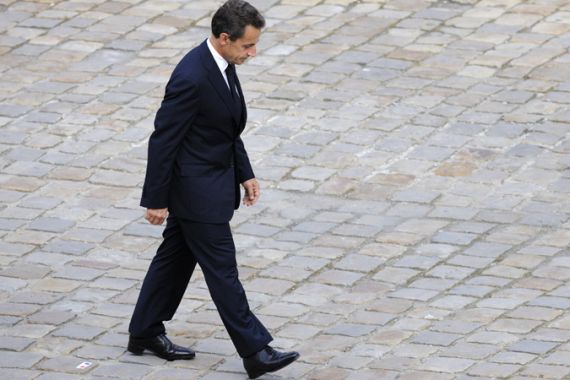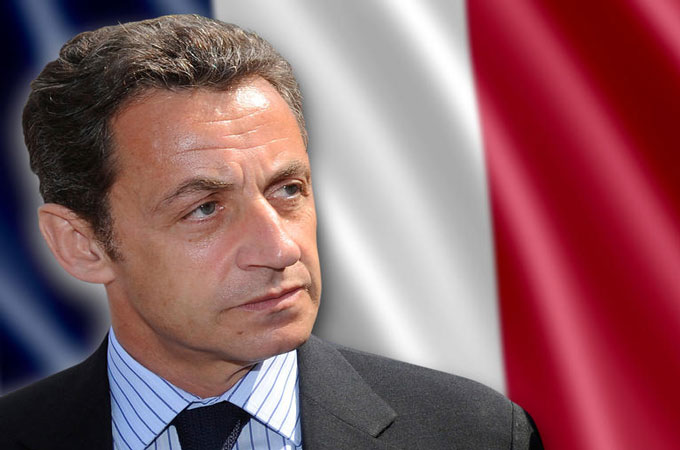French government loses majority in senate
Defeat seen as a blow to President Sarkozy just seven months before he seeks re-election.

 |
| Defeat for Sarkozy’s conservative party in the indirect polls comes just months before a general election [AP] |
French President Nicolas Sarkozy’s conservative government has lost its majority in the senate to the left.
Sunday’s defeat will likely deal Sarkozy a blow just seven months before a presidential election.
It is the first time since 1958 that the right-dominated upper house swung to a left-wing majority.
With the final results announced early on Monday morning, the Socialist Party and its Communist and Green allies won enough seats to give the left control of the upper house.
Their total of 177 seats was two more than the 175 they needed for an absolute majority.
The Socialists hope it will be a stepping stone towards a presidential win in seven months’ time.
The shift to the left, which UMP Senate leader Gerard Larcher had described as having “seismic” consequences ahead of a presidential election next April, pleased left-wing supporters attending a meeting in Paris.
“The 25th of September, 2011, will go down in history,” Jean-Pierre Bel, head of the Socialist group in the Senate, said on LCI television.
“The results of this Senate election represent a real comeuppance for the right.”
The Senate is not chosen by universal suffrage but by a “super-electorate” of elected officials — around 72,000 mayors, local and regional councillors, voting for figures on the basis of regional lists.
The left’s victory followed a series of wins by Socialist candidates in local elections in the same regions where tens of thousands of municipal officials casted their votes on Sunday.
A left-leaning Senate will not be able to block Sarkozy’s legislative plans but the loss of a longstanding bastion for the right is a symbolic setback especially when taken together with his dismal approval ratings.
Sarkozy has become slightly more popular in the past few months, but he remains one of the least popular presidents in post-war France and faces a tough battle for re-election in a two-round vote scheduled for next April.
French voters are depressed about their economic prospects, unemployment remains high and a European debt crisis has put the country’s public finances under spotlight.
Concerns over the poor state of the economy have overshadowed Sarkozy’s foreign policy victories, notably France’s role in the toppling of Libya’s Muammar Gaddafi.
Francois Fillon, the French prime minister, said the result was a result of divisions in the ruling camp.
“Today, the opposition has shown strong progress in the Senate, underscored by divisions in the ruling camp in several regions,” he said in a statement.